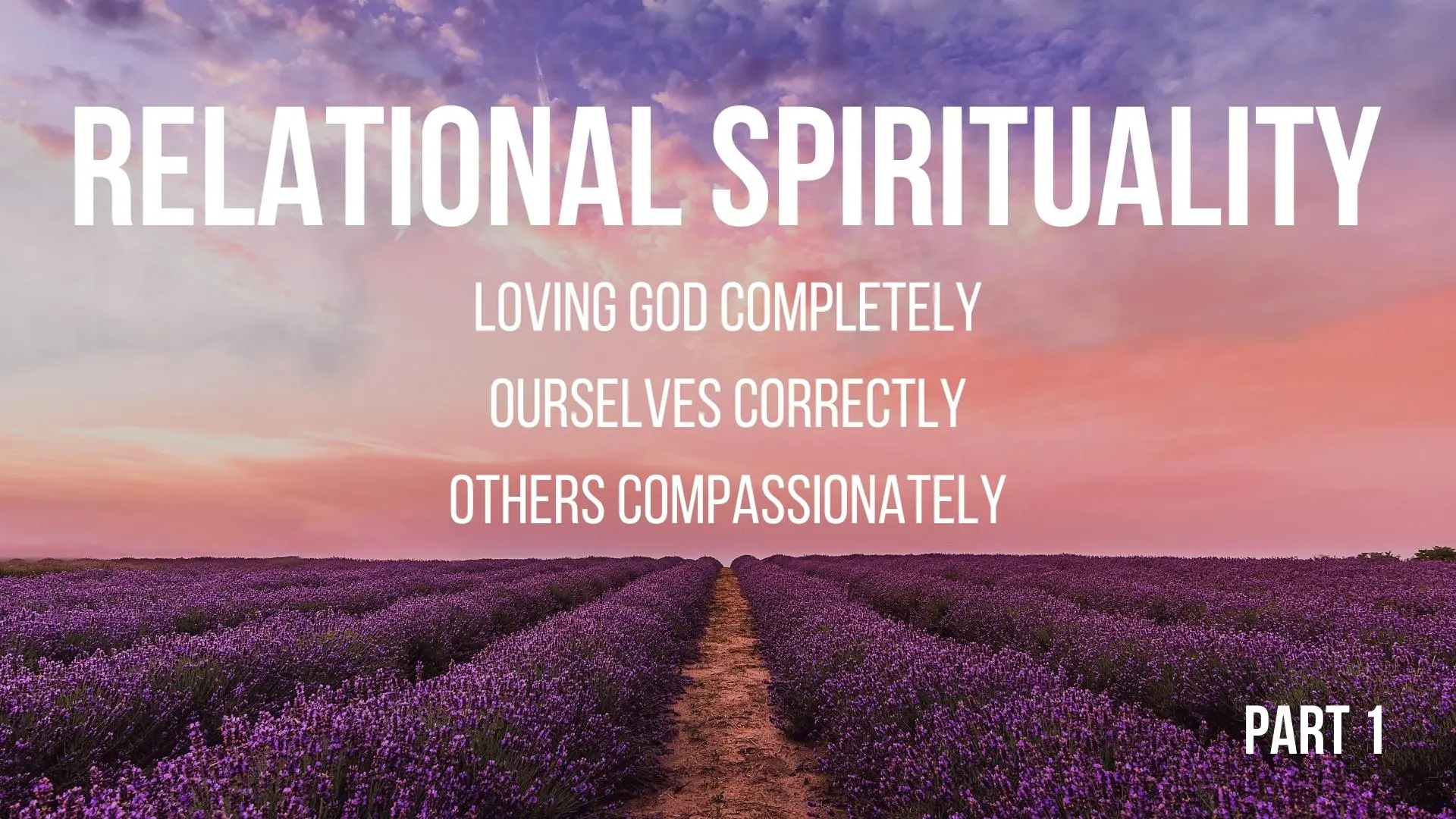There is perfect community within the Godhead: In God, there is one essence (perfect unity) but three persons (diversity). We call this three-in-one God the Trinity, referring to the community of God the Father, God the Son, and God the Holy Spirit.
The Trinity is a mystery, but we can still learn from it. Specifically, it teaches us that God is a personal being; He is relational. He is related to Himself in a perfect way through the unity and diversity of the community of the Trinity. Humans, being made in His image, are relational beings as well. But how are we to relate to God and to those made in His image?
Loving and Knowing God
When asked what the greatest commandment is, Jesus answered,
“You shall love the Lord your God with all your heart, and with all your soul, and with all your mind.” This is the great and foremost commandment. The second is like it, “You shall love your neighbor as yourself.” On these two commandments depend the whole Law and the Prophets. (Matthew 22:37–40)
Notice that the first commandment has to do with our relationship with God, while the second speaks to our relationships with other people. Unless we know who God is, and unless we love Him first, what hope do we have of properly loving ourselves or compassionately loving our “neighbors” (fellow human beings)? Without rightly orienting ourselves toward God—toward the One who creates, sustains, loves, and saves us—there is no legitimate path to loving ourselves or our neighbors well.
The Gospel of Mark also records Jesus’ answer to the Sadducees regarding the greatest commandment. Quoting Deuteronomy 6:4–5, He said
Hear, O Israel! The Lord our God is one Lord; and you shall love the Lord your God with all your heart, and with all your soul, and with all your mind, and with all your strength. (Mark 12:29–30)
We are to love God with our whole person (heart, soul, mind, and strength), and we love because He first loved us (1 John 4:19).
God’s Love for Us
God’s love for us is sacrificial, ceaseless, and measureless. Paul tells us God gave His Son for us even though we were His enemies (Romans 5:8). Further, nothing in all the universe can separate us from His love if we are in Him (Romans 8:35–39). The eternal God of love reached down to us in our brokenness, and gave Himself up for us, that we might become His own.
Our Response
By highlighting the two greatest commandments, Jesus is emphasizing that life is all about relationships. In the end, what matters most in life is, first, how we relate to God and secondly how we relate to others made in His image.
We need God’s Spirit empowering us if we are going to love as He calls us to love. To live in light of these commands, we can pray a prayer like that of Richard of Chichester (1197–1253):
Thanks be to thee, O Lord Jesus Christ,
for all the benefits which thou hast given me,
for all the pains and insults which thou hast borne for us.
O most merciful Redeemer, Friend and Brother,
may we know thee more clearly,
love thee more dearly,
and follow thee more nearly;
for thine own sake.[efn_note]Ken Boa, Conformed to His Image: Biblical, Practical Approaches to Spiritual Formation, rev. Ed. (MI: Zondervan, 2020), 31.[/efn_note]
This study is based on “Facet 1: Relational Spirituality” in Ken Boa’s Conformed to His Image: Biblical, Practical Approaches to Spiritual Formation, rev. ed.



